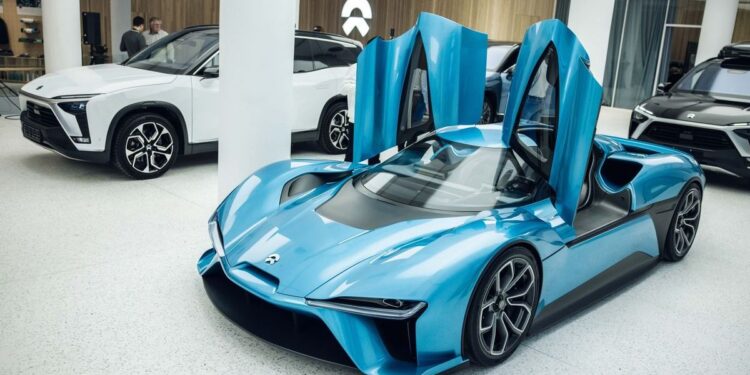Automakers are reconsidering electric vehicle production strategies as a new wave of consumers shift their preferences toward practical and affordable electric options.
A Business Insider report highlights that initial reliance on expensive luxury electric cars, once seen as a fast track to profitability, has faltered in recent months as the wealthy withdraw from the market.
Despite the “setback,” demand for electric vehicles continues among a different group of consumers searching for practical and cost-effective electric alternatives, with a growing preference for hybrid models over pure electric cars.
Business Insider reports that, after halting plans for electric cars late last year, business managers are now re-adjusting their strategies to adapt to the changing landscape.
Mary Barra, CEO of General Motors, announced – a while ago – a strategic shift for the company, as she revealed plans to stimulate sales of hybrid cars in North America.
“Deploying plug-in technology in strategic sectors will provide some environmental benefits to electric vehicles as the country continues to build charging infrastructure,” Barra said, highlighting the company’s commitment to complying with proposed fuel economy and emissions standards for the coming years, according to Business Insider. .
On the other hand, the Swedish company Volvo announced that it will withdraw future financing from its electric car company Polestar, which indicates more challenges facing the industry’s electric car-centric plans.
This change comes in the wake of other setbacks, including car rental giant Hertz reducing the size of its electric vehicle fleet by a third.
Business Insider says the auto industry has effectively split into two camps regarding electric vehicle strategies, with some, such as General Motors and Volkswagen, aiming to produce a fully electric vehicle lineup, while others, including Toyota and Stellantis, are focusing on plug-in hybrids. short term.
GM’s recent move toward hybrid vehicles indicates a growing recognition among industry leaders of the need to integrate hybrid technologies in the near term.
price war
Tesla, a leader in this field, has played a pivotal role in the recent turmoil in the industry. Elon Musk started a price war, taking advantage of Tesla’s high profit margins to reduce vehicle prices while maintaining profitability.
This price war has forced legacy car companies to reevaluate their paths to profitability for battery-powered vehicles.
While older car manufacturers are overcoming the challenges posed by changing consumer demands and price pressures, the current solution appears to be a strategic shift towards hybrid cars, the same source says.
Business Insider reports that this shift is not only positive news for consumers, as growing demand outpaces supply, but also for dealers who are eager to display more hybrid models in their showrooms amid declining demand for pure electric cars.



